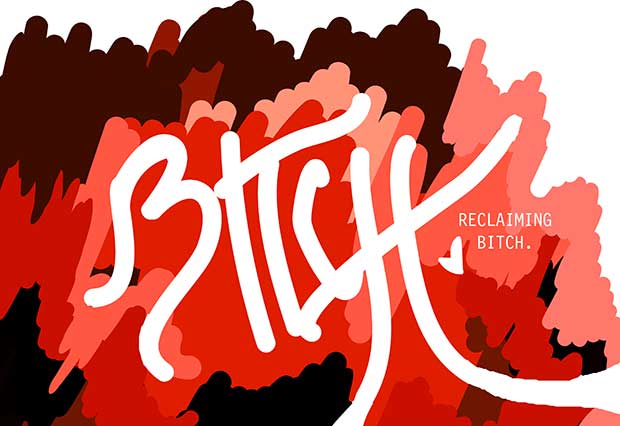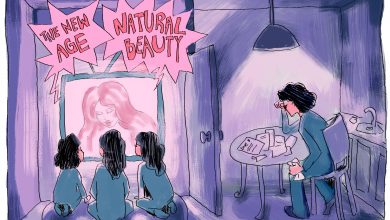Reclaiming Bitch
We are extremely familiar with the word “bitch” — chances are you have either been called, called someone, or heard someone be called a bitch. I know I have experienced all three. The frequent usage of the word bitch got me thinking about its meaning and appropriateness in our daily life.
I’ve found that there are many variations of the word bitch — “bad bitch”, “boss bitch”, “dumb bitch”, “basic bitch”, and “betch”. The word is commonly used in pop culture. In rap songs, titles and lyrics referring to women as bitches are standard. To name a few, “Bitches ain’t shit” by Dr. Dre, “Bitch Bad” by Lupe Fiasco, and Jay-Z’s “99 Problems”. ‘Bitch’ also shows up in television shows: over the course of five seasons, Breaking Bad’s Jesse Pinkman utters the word no fewer than 54 times.
Undoubtedly, “bitch” has various meanings depending on the person uttering the profanity and the intention of the speaker. More often than not, however, the word is used as an insult. Historically, bitch referred to a female dog in heat, but in today’s society, it has taken on new meanings. On Urban Dictionary, bitch is defined to be an “annoying and whiny female” and “a whipped guy who does whatever his girlfriend tells him to”.
The problem with bitch is, no matter who it is directed at, using the word ends up insulting females. Call a man a bitch and you are implying he is weak and whiny (like a woman), but when you call a woman a bitch she is being bossy and too strong. The word is a gendered insult, far more than words that refer to male and female characteristics like “dick” and “cunt”. There are no stereotypes about how a person is acting (ex. in a male or female way) associated with these words, even though they refer male and female genitals. They only connotate that someone’s actions are undesirable. When you call a man a bitch, it is because he is demonstrating the stereotypically female traits of weakness and complaint. You are identifying his behavior as womanly. A woman who is being a ‘bitch’ however, is exhibiting female behavior that is not desirable. Whoever the insult is directed at is being being told that whatever behavior they are portraying is unacceptable for their sex.
Yet, as problematic as it is, The word has become ingrained in our vocabularies, so much so that women say it to each other as often, if not more often, than men. Sometimes it’s in an affectionate way, to your friend who looks way too put together for a Monday morning, and sometimes it’s to describe the snotty, skinny salesgirl who refused to help you find shoes in your size, or your co-worker who showed up to work with an attitude.
Sometimes, being called a bitch can be a compliment, depending on the pronoun before. Calling someone ‘bad bitch’ for example means they are attractive. The question to ask is, when women say the word are we empowering it, or validating its use in a derogatory manner by men?
The answer is that we are probably doing both. There is something about the word that makes it okay for women to say to each other but which comes across as a devastating insult when it comes out of the mouth of a man. Do we commodify its usage, like society has done with racially charged slurs, accept it, or try to change its meaning?
While the word bitch has long been pervasive in music, some artists have begun musing about its significance lately. Most notably, rapper Kanye West recently struggled with the proper usage and appropriateness of the word “bitch”. West tweeted, “I usually never tweet questions but I struggle with this so here goes… Is the word BITCH acceptable? To be more specific, is it acceptable for a man to call a woman a bitch even if it’s endearing? Has hip hop conditioned us to accept this word?” He followed up by comparing it to a controversial racial slur. Much like the N-word, the acceptability of using the word bitch depend on who’s saying it.
Some prominent women have taken a different approach to the bitch conundrum. When talking about people referring to Hillary Clinton as a bitch, Tina Fey affirmed, “bitches get stuff done”. Other celebrities want to reclaim the word bitch as a positive instead of an insult. Fey’s good friend, the equally bad-ass Amy Poehler, said in her new book that her secret to success is ‘bitchiness’ which she takes to mean being unapologetically ambitious and a refusal to be nice just to appeal to people.
For me, if being a bitch means that you assert your opinion without fear of hurting people’s feelings and stop apologizing for being successful, then go ahead and call me a bitch. I’ll wear the label with pride.





